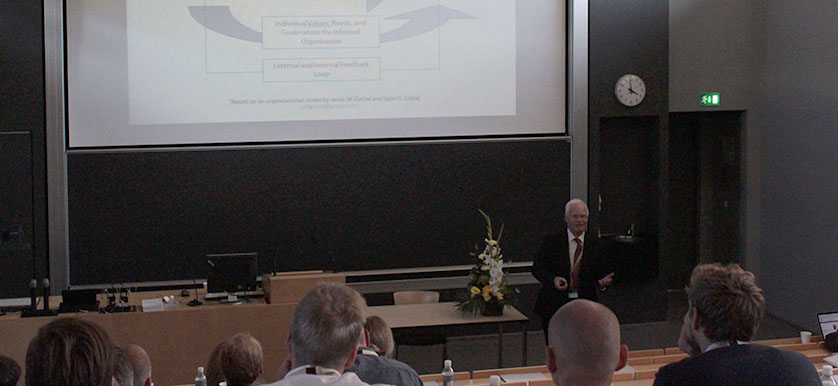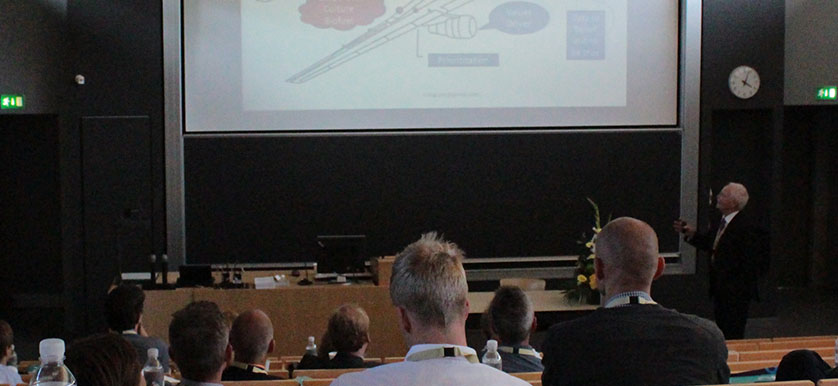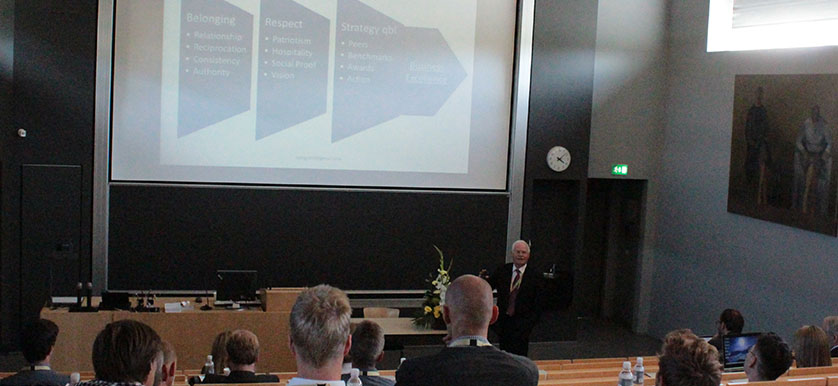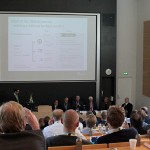High performance corporate culture, brought on by James Grant Regan, at the PMA 2014 Conference
June 25th, the first day of the 2014 PMA Conference, brought on a presentation delivered by James Grant Regan, expert in the field of Organizational Design, Development, Change and Performance, CEO at QaBe Developments, Canada.
Titled “Designing High Performance Corporate Culture”, the presentation looked at the importance of corporate culture and conative triggers, and their implications for the field of performance management, with respect to organizational design and development.
Based on a longitudinal study, set to identify the most effective and efficient triggers for performance excellence, the presentation brings intermediate data, from 282 organizations around the world, which are focused on achieving business excellence.
As highlighted by James Grant Regan, corporate culture has a high influence on the decision making process, determining:
- Distant decision making corporate cultures;
- Local decision making corporate cultures.
Drafted out of what the author found were 115 highly ranked performance triggers, 35 key triggers for performance excellence were highlighted, and clustered according to their distal or proximal approach to the decision making process.
What follows is a list of the 35 key performance excellence triggers, highlighted by James Grant Regan in his presentation.
All of the following contribute to the drive for excellence, in distant decision making corporate cultures:
- A Sense of Belonging
- Relationship empathy
- Reciprocation and fairness
- Corporate consistency
- Recognition of personal authority
- Respect
- Patriotism
- Hospitality
- Social proof
- Understanding the corporate vision
- Understanding of corporate strategy
- Peer pressure
- Benchmarks
- Business Excellence Award knowledge.
The next performance excellence triggers can be used separately in influencing Quality and Business Excellence, within a local decision making corporate culture:
- Curiosity
- Daily research
- Teamwork
- Quality culture
- Knowledge of and ability to meet potential needs of clients
- Ownership of Business Excellence throughout the corporation
- Organizational Maturity (above 160 of the 320 steps)
- Enjoyment of challenge
- Corporate Communication that is efficient and effective
- Attunement to global brand awareness
- Fiscal efficiency
- Business Excellence means profit x 4
- Business Excellence brings profits
- Business Excellence adds value (at all three CTI levels)
- Business Excellence Award knowledge
- Business Excellence Award feedback
- Quality Assurance steps
- Benchmarking action
- Design thinking
- Local Decision Making
- Business Excellence for Survival and Money.

Tags: Performance Management, PMA 2014 Conference








